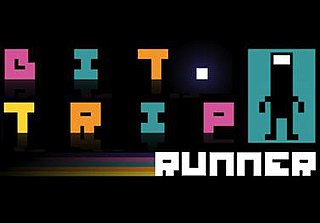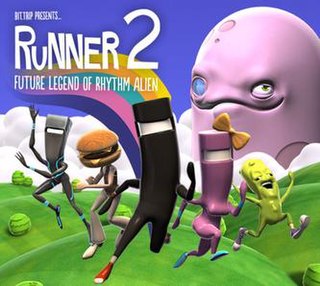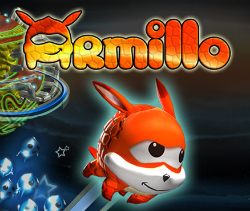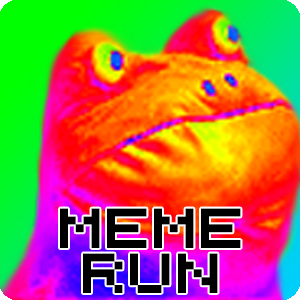
Super Mario Kart is a kart racing game developed and published by Nintendo for the Super Nintendo Entertainment System (SNES). The first game in the Mario Kart series, it was released in Japan and North America in 1992, and in Europe the following year in 1993. Selling 8.76 million copies worldwide, the game went on to become the fourth best-selling SNES game of all time. Super Mario Kart was re-released on the Wii's Virtual Console in 2009, on the Wii U's Virtual Console in 2013, and on the New Nintendo 3DS's Virtual Console in 2016. Nintendo re-released Super Mario Kart in 2017 as part of the company's Super NES Classic Edition.

A platformer is a sub-genre of action video games in which the core objective is to move the player character between points in an environment. Platform games are characterized by levels with uneven terrain and suspended platforms of varying height that require jumping and climbing to traverse. Other acrobatic maneuvers may factor into the gameplay, such as swinging from vines or grappling hooks, jumping off walls, gliding through the air, or bouncing from springboards or trampolines.

Super Mario Bros. 2 is a 1988 platform game developed and published by Nintendo for the Nintendo Entertainment System.

Super Mario Bros.: The Lost Levels is a 1986 platform game developed and published by Nintendo. A sequel to Super Mario Bros. (1985), it was originally released in Japan for the Family Computer Disk System as Super Mario Bros. 2 on June 3, 1986. Nintendo of America deemed it too difficult for its North American audience and instead released an alternative sequel, also titled Super Mario Bros. 2, in 1988. It was remade and renamed The Lost Levels for the 1993 Super Nintendo Entertainment System compilation Super Mario All-Stars, serving as its first international release. It has been rereleased for Game Boy Color, Game Boy Advance, Wii, Wii U, Nintendo 3DS, and Nintendo Switch.

Kirby Super Star, released as Kirby's Fun Pak in PAL regions, is a 1996 anthology action-platform game developed by HAL Laboratory and published by Nintendo for the Super Nintendo Entertainment System. It is part of the Kirby series of video games by HAL Laboratory. The game was advertised as a compilation featuring eight games: seven short subsections with the same basic gameplay, and two minigames.
Super Smash Bros. is a crossover platform fighting game series published by Nintendo. The series was created by Masahiro Sakurai, who has directed every game in the series. The series is known for its unique gameplay objective which differs from that of traditional fighters, in that the aim is to increase damage counters and knock opponents off the stage instead of depleting life bars.

Excite Truck is a racing video game developed by Monster Games and published by Nintendo for the Wii. It features malleable environments and tilt-based controls. The game was one of the Wii launch titles in North America. It is the third main game in the Excite series and the first to feature vehicles other than motorbikes.

Super Mario is a platform game series created by Nintendo starring their mascot, Mario. It is the central series of the greater Mario franchise. At least one Super Mario game has been released for every major Nintendo video game console. However, there have also been a number of Super Mario video games released on non-Nintendo gaming platforms. There are more than 20 games in the series.
Nicklas Nygren, better known as Nifflas, is an independent Swedish video game developer. He is known for his freeware Knytt series along with another freeware game, Within a Deep Forest. He has lived in Umeå, Sweden, and Copenhagen, Denmark.

Bit.Trip, stylized BIT.TRIP, is a series of nine video games developed by Choice Provisions and published by Aksys Games for the Wii, Nintendo 3DS, Microsoft Windows, macOS, PS Vita, PS4, and PS5. It was published by Arc System Works for WiiWare and Nintendo eShop in Japan, and by Namco Networks America Inc for the iPhone, iPod Touch and iPad. Each game revolves around the adventures of a character named "Commander Video", and features "a crazy mix of 80s aesthetics and modern game design". The styles of the games range from pong-like, to platforming, and shooting. Each game in the series features a chiptune-inspired soundtrack, but a different style of rhythm-based gameplay in each. Most games in the series have few levels; Beat, Core, Void and Flux have only three levels each while Fate has six and Runner has 36. Most of the games feature levels lasting between 10 and 25 minutes to make up for having such few levels. The games also consists of 8 modes; Nether, Hyper, Mega, Super, Ultra, Extra, Giga, and Meta; which changes based on how well the player does. Each successive game adds a new mode, the highest being Mega in Beat, and Meta in Flux.

Super Meat Boy is a 2010 platform game designed by Edmund McMillen and Tommy Refenes under the collective name of "Team Meat". It was self-published as the successor to Meat Boy, a 2008 Flash game designed by McMillen and Jonathan McEntee. In the game, the player controls Meat Boy, a red, cube-shaped character, as he attempts to rescue his girlfriend, Bandage Girl, from the game's antagonist Dr. Fetus. The gameplay is characterized by fine control and split-second timing, as the player runs and jumps through over 300 hazardous levels while avoiding obstacles. The game also supports the creation of player-created levels. Super Meat Boy was first released on the Xbox 360 through Xbox Live Arcade in October 2010, and was later ported to Microsoft Windows, OS X, Linux, PlayStation 4, PlayStation Vita, Wii U, and the Nintendo Switch. A Wii version was in development but was ultimately cancelled.

Mario is a multimedia franchise created by game designer Shigeru Miyamoto for the Japanese video game company Nintendo, which produces and publishes its installments. Starring the titular Italian plumber Mario, it is primarily a video game franchise but has extended to other forms of media, including television series, comic books, a 1993 feature film, a 2023 animated film, and theme park attractions. The series' first installment was 1983's Mario Bros. even though Mario made his first appearance in 1981's arcade game Donkey Kong and had already been featured in several games of the Donkey Kong and Game & Watch series. The Mario games have been developed by a wide variety of developers. Mario games have been released almost exclusively for Nintendo's various video game consoles and handhelds, from the third generation onward.

Bit.Trip Runner is an arcade-style rhythm game developed by Gaijin Games and published by Aksys Games for the Wii's WiiWare download service. It is the fourth game to be released in the Bit.Trip series of games, serving as the successor to Bit.Trip Beat, Bit.Trip Core and Bit.Trip Void, and as the predecessor to Bit.Trip Fate and Bit.Trip Flux. A remake called Bit.Trip ReRunner was released on September 19, 2023 for Windows, developed by Choice Provisions and Gamecraft Studios.

Rayman Legends is a local co-op, platform video game developed by Ubisoft Montpellier and published by Ubisoft. It is the fifth main title in the Rayman series and the direct sequel to the 2011 game Rayman Origins. The game was released for Microsoft Windows, PlayStation 3, Xbox 360, Wii U, and PlayStation Vita platforms in August and September 2013. PlayStation 4 and Xbox One versions were released in February 2014, with a Stadia version released in November 2021. A Nintendo Switch port, titled Rayman Legends Definitive Edition, was released in North America, Europe and Australia on September 12, 2017.

Bit.Trip Presents... Runner2: Future Legend of Rhythm Alien is a 2013 side-scrolling platformer developed by Gaijin Games. The game is the sequel to Bit.Trip Runner (2010) and was released as a downloadable title on PlayStation 3, PlayStation Vita, Xbox 360, Wii U, Microsoft Windows, OS X, Linux, and iOS. Versions for PlayStation 4 and Nintendo Switch were later released in 2016 and 2024 respectively. The PC, Mac, Linux, and Wii U versions were self-published by Gaijin Games, and the Xbox 360 and PlayStation 3 versions were published by Aksys Games.

140 is a platform game developed and published by Carlsen Games. It was directed by Jeppe Carlsen, who previously worked on Playdead's Limbo. The game is described as a "minimalistic platformer", using electronic music to create synesthesia as the player makes their way through four different levels, each with its own soundtrack. Its gameplay has been compared to other similar games which involve music synchronization like Sound Shapes and the Bit.Trip series, though with difficult platforming elements comparable to games in the Mega Man series. The game was released for Microsoft Windows, Mac, and Linux in October 2013, on Xbox One in August 2016, on PlayStation 4 and Wii U in September 2016, and Nintendo Switch in January 2020. A release on PlayStation Vita and Nintendo 3DS was planned, but later cancelled.

Guacamelee! is a Metroidvania action platforming video game developed and published by DrinkBox Studios, initially launched in April 2013 for platforms PlayStation 3 and PlayStation Vita and was later ported to Windows in August and to OS X and Linux in February 2014. The enhanced Super Turbo Championship Edition was released for Wii U, Windows, PlayStation 4, Xbox One, and Xbox 360 in July 2014 and later on the Nintendo Switch in October 2018. The game is inspired by traditional Mexican culture and folklore, like alebrijes and Day of the Dead.

Super Mario 3D World is a 2013 platform game developed and published by Nintendo for the Wii U. It is the sixth original 3D platform game in the Super Mario series and the sequel to Super Mario 3D Land, a 2011 title for the Nintendo 3DS. The game was also re-released for the Nintendo Switch in Super Mario 3D World + Bowser's Fury on February 21, 2021.

Armillo is a 3D puzzle-platform game developed by Fuzzy Wuzzy Games. It was released on July 3, 2014, for the Wii U on the Nintendo eShop. A Windows port was released on July 3, 2020.

Meme Run is an endless running video game created by American indie developer Ninja Pig Studios for the Wii U console's eShop service. The game features extensive use of Internet memes; for example, the player character is a stick figure with a trollface for a head, and the levels are made up of Lenny faces. The game was designed to appeal to both hardcore and casual audiences, but has been widely criticized both before and after its release for its perceived low quality.



















